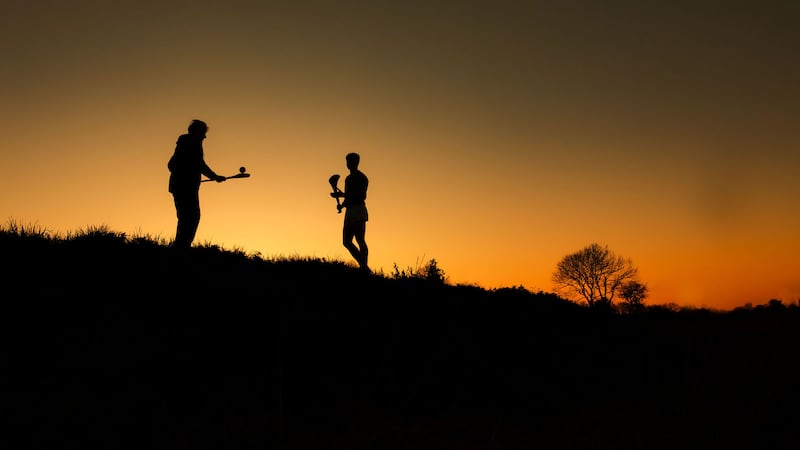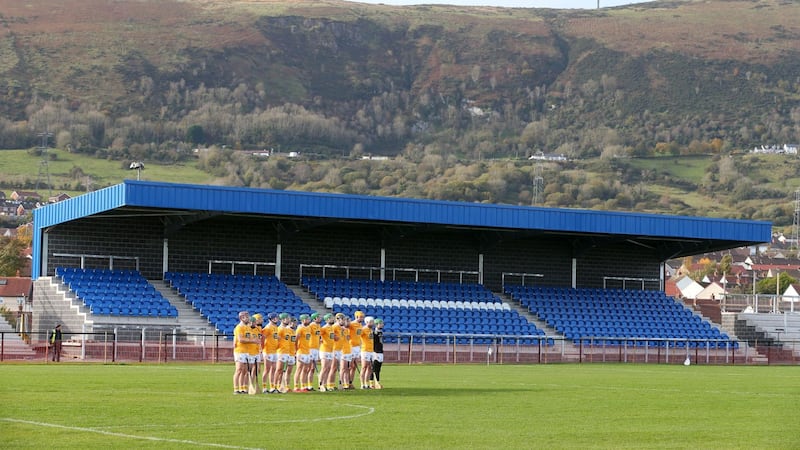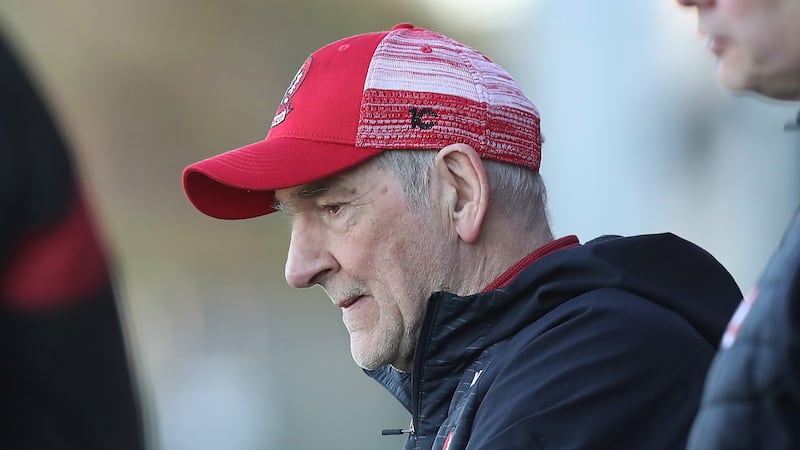“Even if the hopes you started out with are dashed, hope has to be maintained.”
Seamus Heaney
IN establishing a new vision of hope for what the GAA’s 2020 calendar will look like, peering at what professional sports are doing is the wrong way to go.
In spite of all that is going on around them, some global sporting franchises continue to think in a vacuous way.
UEFA this week finally drew up guidelines for what it would mean if soccer leagues are not finished, but advised strongly against the idea in the same breath.
They’re still looking at potential late August dates for the Champions League and Europa League finals, while the Premier League clings to the idea of a condensed finish to their season.
Other countries have been led into a more pragmatic approach. Earlier this week, the Dutch government banned professional football until at least September, giving them no option.
In the same swoop, they announced schools will reopen in May and that youth team sports can be restarted.
The Dutch view is that the closure of schools “has had no impact on the spread” of the virus as children are “unlikely to pass on the virus or develop serious symptoms”.
Every idea is a guinea pig. Other countries will view the impact of the move in Holland, just as they’ll watch how the relaxation of restrictions in Spain affect their huge death toll, which increased by more than 450 again yesterday.
Almost 1,000 people in Ireland have already sadly died from Covid-19. That figure will continue to increase. Yet the measures imposed in Ireland and their timing appear to have had a significant impact in stemming the spread of the virus, compared to how other countries have struggled.
Nobody knows how and when this will end, or what the world will look like when it does.
Some governments are considering easing lockdown restrictions in a bid to soften the economic impact. No-one knows if such measures will need to be reversed again, and how far back towards square one it would take a country.
We just do not know.
But while we do not know, we cannot guess.
Professional sport’s hand-to-mouth existence hangs over it now like a tonne of bricks, ready to obliterate the games. If all that is left are the fragments from which it were born, there might be some good in it.
Money bubbles are popping everywhere. The major soccer leagues are all trying to come up with inventive ways in which they can save their billion-pound TV deals, even if they have to sacrifice the gate receipts.
The association of Spanish footballers (AFE) held a video call with the captains of all 42 teams in the top two divisions on Tuesday, where the players expressed concern about La Liga’s plans for closed training camps.
That has been one of the solutions thrown around in professional sporting circles. This idea that the players will cocoon away in an isolated camp and only come out to play games.
American sports have been particularly reluctant to concede ground to the virus but with the MLS having already lost a third of its season and Major League Baseball postponing games at a rate of a dozen a day, there’s an impending sense of panic.
The Australian Football League, our antipodean cousins, are demonstrating all the reasons why the GAA can never go professional. They’re now discussing playing 16 games in 10 weeks, and shortening the length of games, just to get the season played.
Everywhere you look, someone has a different idea. Taking players off to camps and cocooning them. Festivals of football over a few days. Shortening games. Shortening seasons.
So there’s a chance that they might find a way.
The players are pawns, contractually obliged to do as they’re told.
That doesn’t mean we have to follow.
A €60m black hole stares at the GAA if they have no inter-county championship.
They have a €14m broadcast deal and €5m worth of sponsorship they would like to uphold their end of, €36m worth of seats it would like to fill and millions of pairs of eyes it would like to please.
But it’s all secondary. It’s all nothing, really.
If a few capital projects have to be shelved or delayed, or if some county doesn’t get funding for an eyes-bigger-than-belly development, so what?
Ends will have to be stretched if they are to meet. More than €20m will be needed to pay the wages of coaches and Croke Park staff. Those people and their jobs must be the first concern.
But when making decisions about returning to play, the GAA cannot be drawn into taking risks by the threat of lost revenue.
Our players are not pawns. They’re not contractually obliged to do anything. They’re sons and grandsons and brothers, they’re our frontline workers, and they live in our communities.
The GAA says it has not seriously discussed the idea of a behind-closed-doors championship. Nor should it, for what would be the point?
Bringing colour and joy and release to the summer is the whole idea. If that doesn’t exist, and nor does a vaccine for Covid-19, there can be no justification for playing inter-county games.
Unless society is permitted to involve itself in the GAA’s championship, then there ought to be none.
There surely can be no return to play until all and any risk of the virus spreading has been eliminated.
That includes club games. The 5,000 attendance threshold placed by the Irish government raised hope in the idea of club games returning as attendances would ordinarily fall below that threshold.
Naturally that assumption discounts club championship, which in many parts of the country would break the threshold. And why would we start a championship we can’t finish?
At league games, supporters might be able to keep themselves safe or even at home, but the players wouldn’t.
Until a solution exists, there will be no way of guaranteeing their safety in a contact sport.
The actual transfer of the ball itself from person to person? Taking a swig of water? The lack of space in a changing room? Players travelling to games? The horrendous sanitary conditions of most GAA venues?
There are so many imperatives to playing Gaelic Games that go against current social distancing regulations.
It is an incredibly frustrating period for all sports lovers, whether it’s Saturday morning soccer, Sunday morning golf or Sunday afternoon Ulster Championship.
Every one of them would love to be back out in their field tomorrow. But only if it’s safe.
Sporting and government authorities have a responsibility to protect them. That must be prioritised above all else.
Hopes we started out with in 2020 have been dashed.
Realism must exist too.
We must start to come to terms with the idea that there might be no GAA in 2020.
But if it’s for the best, so be it. Your health is most definitely your wealth.
We’ll get by, and we’ll hope that next year might be the year.
For GAA will return some day, and hope must be maintained.








